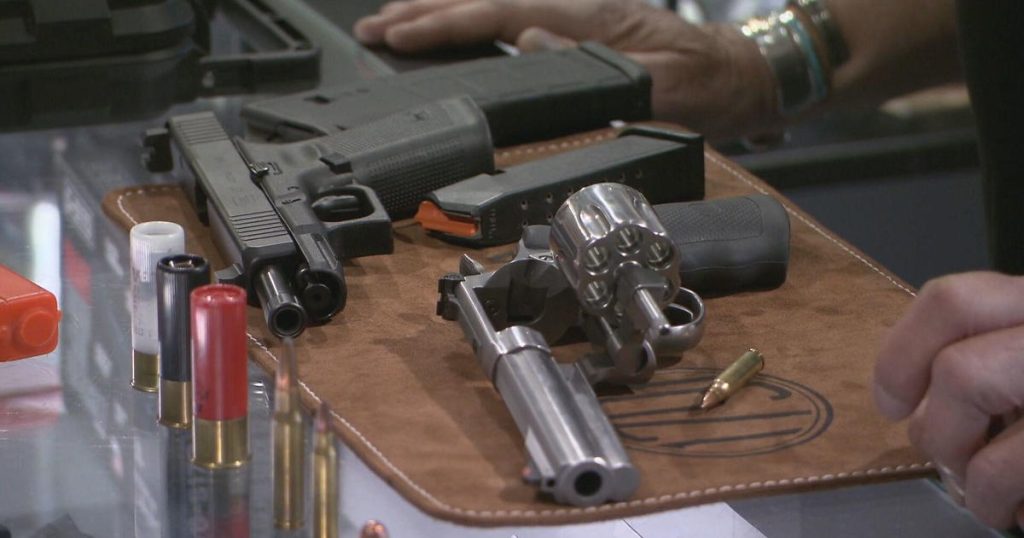In Wisconsin, medical professionals are training at gun ranges to learn about firearms in order to save lives. Dr. James Bigham, a primary care doctor and professor at the University of Wisconsin School of Medicine, runs a class for medical students and staff at Max Creek Gun Range to teach them about the basics of firearms. Bigham believes it is essential for physicians to be able to talk to patients about gun safety, especially in homes where firearms are present. He emphasizes the importance of protecting children and communities by discussing safe gun storage practices with patients during routine visits.
While some may feel uncomfortable discussing firearms with their doctor, Bigham believes it is within a physician’s scope of practice to address important topics like gun safety. He compares counseling patients on firearms to counseling them on alcohol consumption, tobacco use, and safe driving practices. Gun shop owner Steve D’Orazio, who partners with Bigham for the firearms training classes, agrees that responsible gun ownership includes being knowledgeable about safety practices. D’Orazio emphasizes that gun safety is not about taking away Second Amendment rights, but rather about ensuring the safety of individuals and communities.
Accidental shootings and suicide rates involving firearms are a significant public health concern in the United States. Every year, nearly 500 people die from accidental shootings, and suicide rates involving guns are at an all-time high for adults. Access to unlocked firearms in homes increases the likelihood of suicide, especially among children. Pediatricians stress the importance of discussing safe gun storage practices with parents, as children as young as 3 years old may have the strength to pull a trigger. Organizations like the Children’s Hospital of Philadelphia provide gun locks to families to prevent unintentional shootings by children and promote responsible gun ownership.
Dr. Dorothy Novick, a pediatrician at the Children’s Hospital of Philadelphia, teaches soon-to-be doctors how to address firearms in injury prevention and safety counseling. The hospital’s program offers gun locks to families and plans to provide gun safes in the future. The surge in gun purchases during the COVID-19 pandemic has prompted the hospital to prioritize discussions about firearm safety with patients. Novick emphasizes that firearm safety is a conversation about safety, not politics, and is a fundamental aspect of responsible gun ownership. By integrating discussions about safe gun storage into routine medical visits, healthcare professionals can help prevent tragic accidents and promote community safety.
Overall, the collaboration between medical professionals and gun owners at gun ranges in Wisconsin exemplifies how healthcare providers can address firearm safety as part of their patient counseling. By promoting responsible gun ownership, offering resources like gun locks, and engaging in open conversations about firearms, medical professionals can play a crucial role in preventing accidents and saving lives. Gun safety education should be integrated into routine medical care to ensure that patients are informed about safe storage practices and the potentially life-saving impact of responsible gun ownership.


